Turn Off Your Mind, Relax, and Float Downstream: A Playlist of Musical Zen (PART 1)
(DISCLAIMER: Neither The Beatles, nor 𝑇𝑜𝑚𝑜𝑟𝑟𝑜𝑤 𝑁𝑒𝑣𝑒𝑟 𝐾𝑛𝑜𝑤𝑠, appear on this list.)
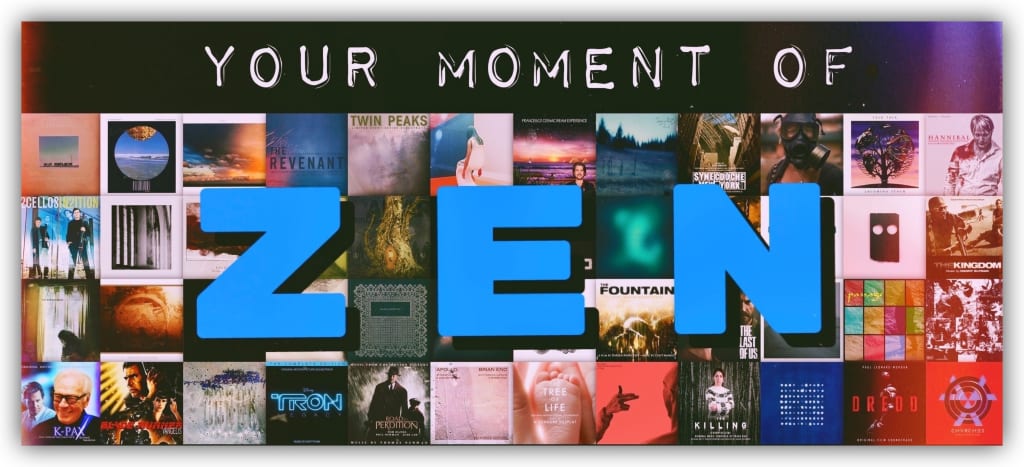
A curated mixture of genres ranging from ambient to classical, shoegaze to synthwave, and post-rock to electronica, these 48 tracks represent the broad spectrum of the types of music I've used over the years to aid me in chilling out, finding calm, and even capturing sleep if needed.
As I always do my best to with these playlists, I've arranged the songs into a listening order that fluctuates organically in tone from one track to the next, though of course you can always play it on Shuffle, and it should work just as well.
Now here it is, your moment of zen...
•••
• Khruangbin - 𝙰𝚞𝚐𝚞𝚜𝚝 𝟷𝟶

We kick things off with the supremely chilled vibes of 'August 10', a track near the midway point of bewigged Texan trio Khruangbin's breakout second album, Con Todo El Mundo (a title referencing a frequent exchange that the band's bassist Laura Lee shared with her grandfather when she was a child, wherein he would ask her "Cómo me quieres?" ("How much do you love me?"), and she would answer with "Con todo el mundo" ("With all the world")).
Like with most of Khruangbin's music, 'August 10' has the gracefully groovy atmosphere of a sun-drenched summer afternoon, conjuring images of sunglasses, barbecues, deserts, cool drinks clinking in ice-filled glasses, and laughing friends lounging by a pool. (Though I could also be thinking of the setting of the brilliant Andy Samberg/Cristin Milioti sci-fi rom-com, Palm Springs, in which this very song appeared in that film's opening minutes, so maybe just let the music fill your imagination with whatever imagery comes to you.) This mood is adroitly manifested by the band's eclectic array of influences - psychedelia, funk, surf, and soul, spanning all across multiple decades, cultures, and continents anywhere and everywhere between East and West - and the flawless musicianship of all three members, from Laura Lee's throbbingly thick bass lines (or, if you prefer, thicc with as many added C's as you deem appropriate), to Donald "DJ" Johnson's pinpoint-precise percussion, and the glorious buttery-smooth guitar work of Mark Speer.
This track is effortlessly cool, and lighter than air, floating along in a psychedelic haze occasionally punctuated by the gentle vocals of Lee and Speer adding some "la la la" and "ooooooh"-type vocal wisps of texture to give it the feel of a laid-back, weed-fuelled lullaby.
• Tangerine Dream - 𝙻𝚘𝚟𝚎 𝙾𝚗 𝙰 𝚁𝚎𝚊𝚕 𝚃𝚛𝚊𝚒𝚗
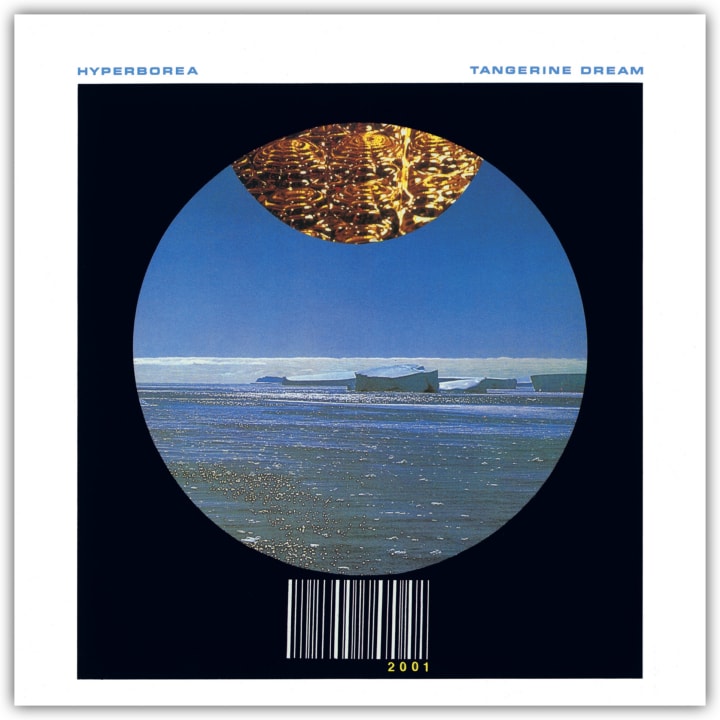
Beginning life as the most memorable song from their score to the early Tom Cruise vehicle, Risky Business, to a beloved staple of the band's catalogue that none of their concerts would be complete without, the ethereal excellence of Tangerine Dream's 'Love On A Real Train' is a twinkling, percolating piece of timeless synth-driven electronica with near infinite replayability. It chugs along propulsively, yet calmingly, accruing layer after layer of melodic lines, ambient pads, and hauntingly gorgeous wordless vocals, altogether creating an aura of ambiguity that can convey wonder, or hopelessness, or exhilaration, or uncertainty.
It makes complete sense then that with its all-purpose, one-size-fits-all musical mood, the song has gone on to repeatedly find new life within new contexts in other films and TV shows years after the fact, appearing in such things as Mr. Robot, Black Mirror: Bandersnatch, and in an extended, re-recorded capacity in the film Louder Than Bombs, to name just a few examples.
• Moby - 𝙲𝚑𝚘𝚛𝚍 𝚂𝚘𝚞𝚗𝚍𝚜
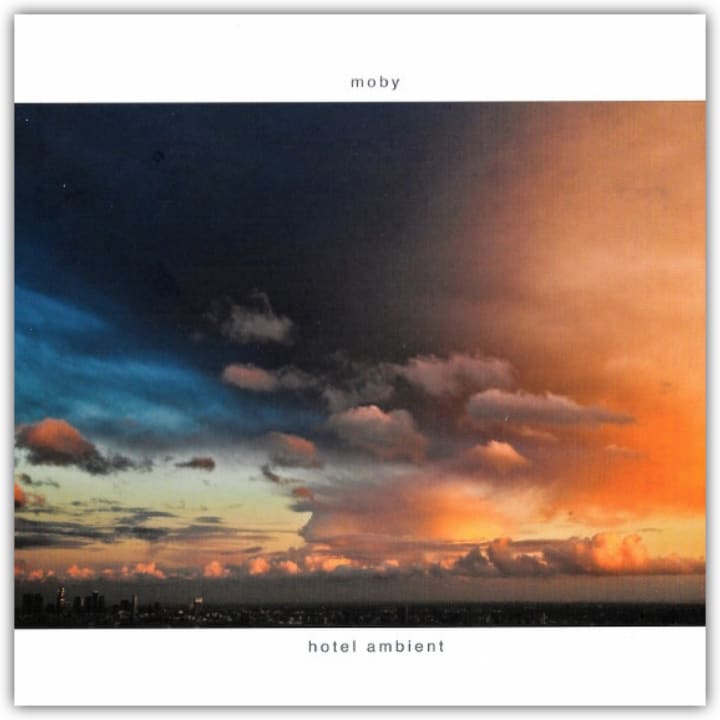
Moby's done a lot of ambient music in his career, to put it mildly. In recent years, he's put out two multi-hour-spanning Long Ambient albums (the second of which debuted on the Calm app), and a Live Ambients album of improvised, unedited ambient compositions; his second ever album was entitled Ambient; and from Everything Is Wrong onwards, many of his albums came with bonus discs of either original ambient songs, or ambient remixes of tracks from the main record. Everything Is Wrong had Underwater, Animal Rights had Little Idiot, Wait For Me had its ambient alternative namesake, and as such, so did Hotel, whose ambient cousin is where 'Chord Sounds' hails from.
At around the same time it was released as part of Hotel Ambient, 'Chord Sounds' - alongside several other tracks from the album, including 'Snowball', 'Blue Paper', 'Overland', 'Live Forever', and 'Aerial' - were used in tandem with the five original compositions Moby created for his score to Richard Kelly's Southland Tales, with some of those five only appearing in the extended Cannes Cut, which most people will have only begun to see nowadays with the advent of Arrow Video's 2021 Blu-ray release of both cuts of the film. (This isn't an affiliate link or anything, I just really like Southland Tales, and Arrow Video especially so, who are like the Criterion Collection, but much less expensive, and dedicated to the kind of cult classics, trashy horrors, and forgotten gems Criterion might overlook. 88 Films, 101 Films, Powerhouse Films/Indicator, Eureka!/Masters of Cinema, and Second Sight also all do great work on the physical home media front, all of which makes this film collector very happy.)
'Chord Sounds' makes its way onto this list by virtue of its freeform repetitious structure, the long, dreamy chords never resolving, but always looping back in a seamless ouroboros loop, while deep subtle bass notes, and slightly phased and muted percussive synths anchor the ambience with a sense of slow but steady movement, as the main refrain ebbs and flows in blissful intensity, never once breaking the zen of it all.
• Ryuichi Sakamoto - 𝚃𝚑𝚎 𝚁𝚎𝚟𝚎𝚗𝚊𝚗𝚝 𝙼𝚊𝚒𝚗 𝚃𝚑𝚎𝚖𝚎
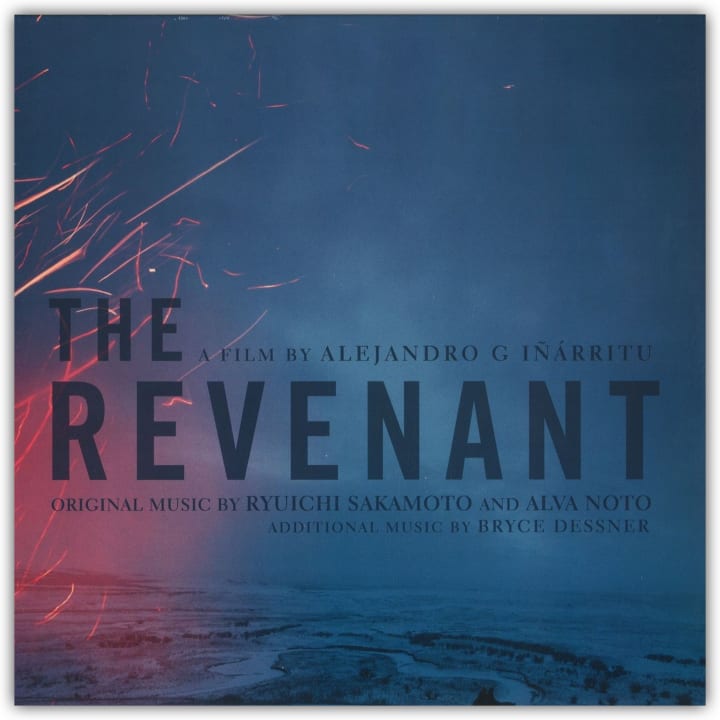
From the movie that finally nabbed Leonardo DiCaprio the Oscar he'd long been gagging for (figuratively speaking, I mean, rather than the literal gagging he did on-screen when he ate that raw bison liver), the score to Alejandro González Iñárritu's The Revenant was a mammoth three-person collaboration. At the forefront was prolific Japanese composer Ryuichi Sakamoto, some of whose music Iñárritu had previously licensed for use in his film, Babel, the most prominent being the delicate piano-and-strings instrumental 'Bibo No Aozora', from Sakamoto's 1997 album Smoochy. (This song was also used in the depraved and bonkers Neveldine & Taylor-written horror thriller, Pathology, which maybe only like a half dozen people in the world remembers anymore. I liked the film when I first saw it at age 16 in 2009, but I can't say if I'd still like it or not today. Also, 'Bibo No Aozora' was later reworked into a song, with lyrics written and sung by Jarvis Cocker, called 'Tearjerker', on Cocker's 2017 collaborative album with Chilly Gonzalez, Room 29. Having listened to it, in my opinion it's... not great, with Cocker's husky, strained speak-singing hampering the impact of Sakamoto's moving melody. On the other hand, Cocker and Gonzalez's instrumental cover, 'The Tearjerker Returns', is automatically a lot better just because Cocker isn't talking all over it. Fancy that.)
For Sakamoto, composing for The Revenant was part and parcel of the process of his recovery from the throat cancer that he'd been diagnosed with in 2014. (Unfortunately, while that cancer wound up going into remission, Sakamoto was diagnosed with another form of cancer in early 2021, which he's also received surgery and treatment for.)
Scoring the entire film was an undertaking too grand for him to do alone whilst he was still recuperating, so enlisted into the fold were Sakamoto's recurring collaborator, German electronic musician Alva Noto, and composer/multi-instrumentalist member of The National, Bryce Dessner.
But all of their efforts are centred around Sakamoto's hauntingly sparse, palpably wintry main theme. The melody is short and direct, but the spaces between the notes are left wide open with a gaping, desolate hollowness, filled with nothing but a spectral breeze hinting at a vast landscape consuming and swallowing the music in its maw, before the melodious sound can ever reach a high enough crescendo to breach the suffocating surroundings. It's both chilling, yet meditative; full of anguish, yet tinged with hope.
• 2CELLOS - 𝙱𝚎𝚗𝚎𝚍𝚒𝚌𝚝𝚞𝚜
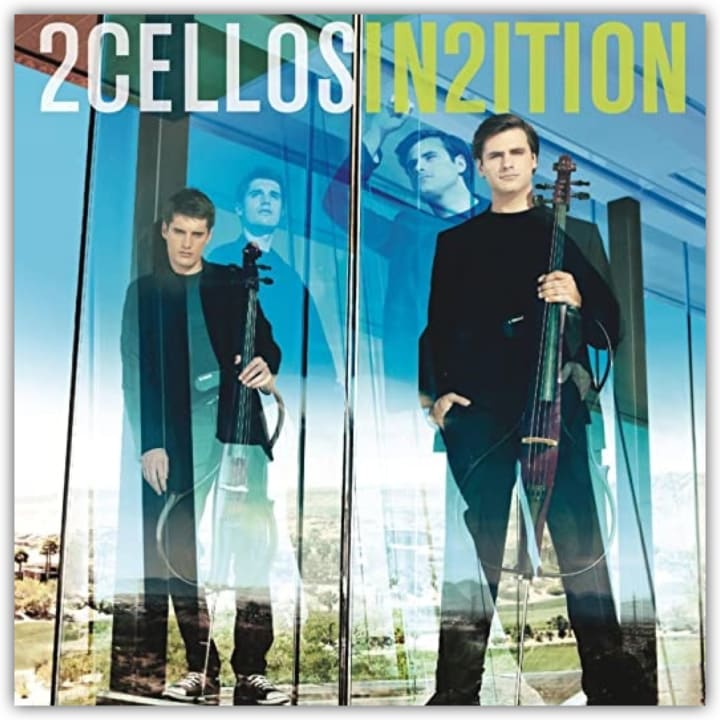
Luka Šulić and Stjepan Hauser, the Croatian cellist couplet* collectively called 2CELLOS, are most well-known for their rollicking, rambunctiously thrilling cello covers of famous rock and pop songs. From the 'Smooth Criminal' video they did that later got recreated on Glee, to their thunderously barnstorming version of 'Thunderstruck' (that - *whisper it* - might even be better than AC/DC's...?), 2CELLOS can cover just about anything they set their minds to.
But here I've chosen their exemplary, achingly beautiful interpretation of 'Benedictus', from Welsh classical composer Karl Jenkin's anti-war Mass, The Armed Man: A Mass for Peace.
Words cannot do justice to the heart-piercing power of the piece, and in the hands of 2CELLOS, their stripped-down variation puts the focus solely on the hymnal song's melody in its purest form.
*(Okay, duo is the proper word, but the alliteration was too tempting to pass up.)
• Paul Jebanasam - 𝙼𝚞𝚜𝚒𝚌 𝚏𝚘𝚛 𝚝𝚑𝚎 𝙲𝚑𝚞𝚛𝚌𝚑 𝚘𝚏 𝚂𝚝. 𝙹𝚘𝚑𝚗 𝚝𝚑𝚎 𝙱𝚊𝚙𝚝𝚒𝚜𝚝: 𝙸𝙸
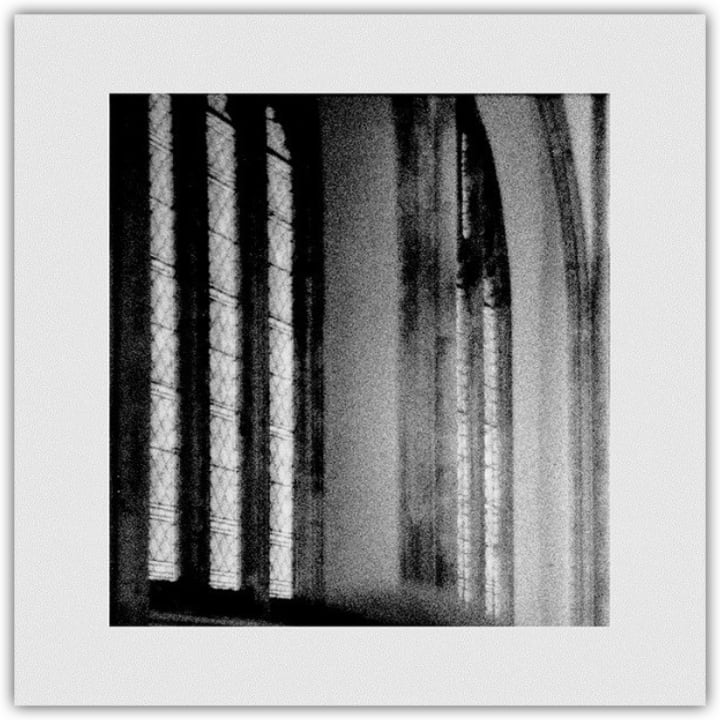
The second part of an extended 4-part movement, performed live in 2011 in the album's eponymous church located in Bristol, Paul Jebanasam's work here is part spiritual chamber music, part experimental dark ambient drone. It's an expansive, all-encompassing aural cocoon of noise and sound that envelops the listener in an immersive landscape of your imagination's choosing. This segment feels like a distant downtempo relative of something like Hans Zimmer's work on Interstellar, with its slow, methodical, metronomic percussive tocks, and a grand church organ incrementally rising in the mix to a poignant crescendo.
• Lisa Gerrard & Patrick Cassidy - 𝙴𝚕𝚎𝚐𝚢
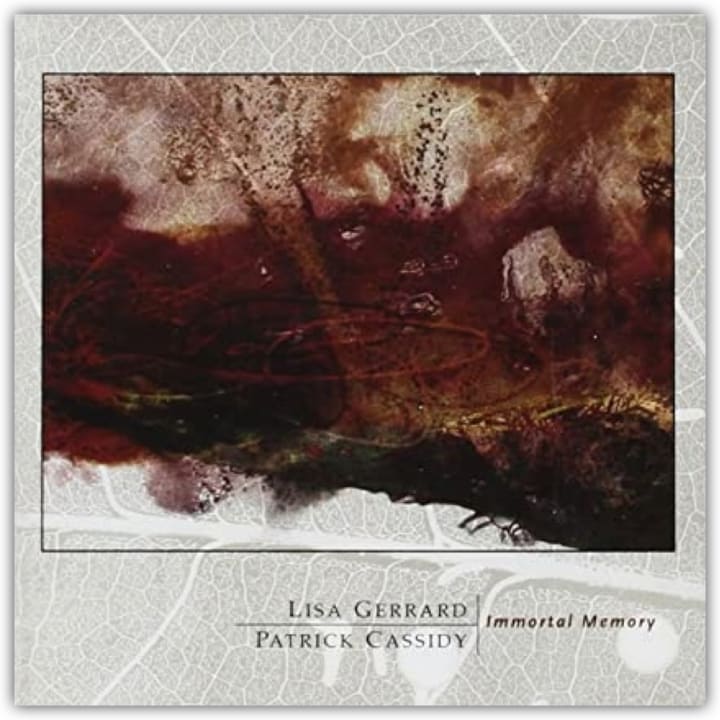
This was one of those songs you heard in the trailers for Man of Steel back in the day, where its sheer unfathomably spine-tingling awesomeness - inherent to the earth-shaking, god-tier voice of Lisa Gerrard - made that film look like it'd be a transcendent cinematic masterpiece, elevated beyond the trappings of the superhero genre to become a soul-enrichingly spiritual experience.
And then the film turned out to be... not that.
Still, it began a trend Zack Snyder would continue with the marketing for 2021's Zack's Snyder's Justice League (a.k.a. The Snyder Cut, a.k.a. Not Joss-tice League), where he used another mournfully epic Lisa Gerrard song, this time around in the form of 'Celon' from her debut solo album, The Mirror Pool, mixed in with the specially composed orchestral trailer music, 'Praxis', by Totem.
• Eluvium - 𝙿𝚛𝚎𝚕𝚞𝚍𝚎 𝙵𝚘𝚛 𝚃𝚒𝚖𝚎 𝙵𝚎𝚎𝚕𝚎𝚛𝚜
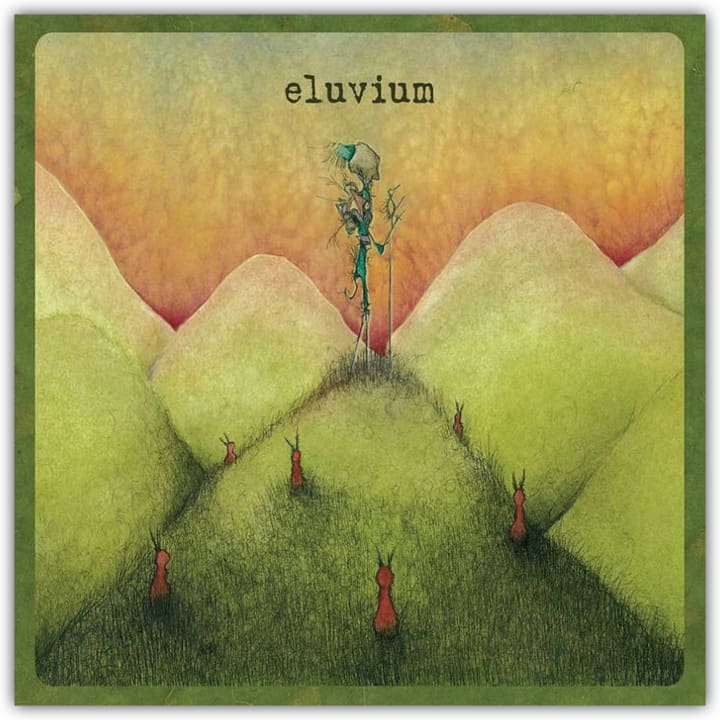
A sentimental romantic piano ballad in search of a romance movie's obligatory montage of a couple laughing, and bonding, and having cutesy fun and hijinks (probably involving ice cream, amusement parks, and/or a photo booth) during their honeymoon period, Eluvium's 'Prelude for Time Feelers' is a sumptuous cascade of pianos, keyboard synths, and escalating onrush of strings evoking a serotonin-boosting feeling of youthful ecstasy, earnestness, exuberance, and joy.
• The War On Drugs - 𝙳𝚒𝚜𝚊𝚙𝚙𝚎𝚊𝚛𝚒𝚗𝚐
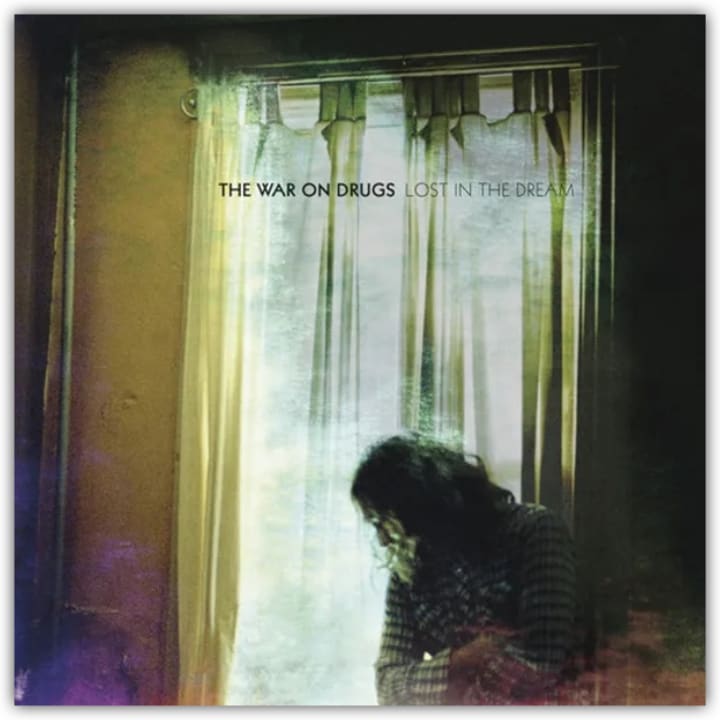
Awash in thick swathes of layers upon layers of guitar, synths, keys, bass, filtered drums, reverb, effects, and all manner of other production techniques that conjure a dreamy smear of sound that carries you along on its lilting tide, 'Disappearing' is one of the highest of the many high points of The War On Drugs' 2014 album, Lost In The Dream. Lulling the listener into its warm embrace too is the weary, wistful voice of lead singer/songwriter/doer-of-basically-everything, Adam Granduciel, whose vocals I've often thought akin to a combination of Paul Simon, and Bob Dylan.
(Which is kind of ironic, given the as-of-writing very recent brouhaha surrounding that opinion piece, where that guy proclaimed that Simon would forever be a footnote to Dylan. Like... dude, relax. Why pit one person's legacy against another's? Why is it a competition? Calm your tits, my guy.)
• Aphex Twin - #𝟹
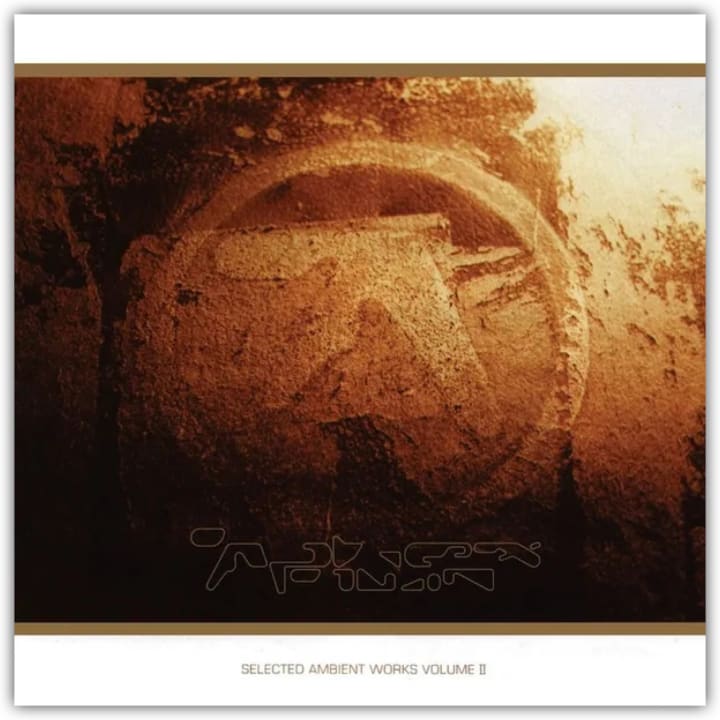
Far, far away from Aphex Twin's prolific output of impenetrably titled, knottily complex techno music of which he's perhaps best known, there exists early in his discography the quieter, simpler mode of something like the track he only ever named '#3', but which in fan circles has come to also be known as 'Rhubarb'.
A deceptively mundane title for an elegantly uplifting piece of ambient loveliness, from the same guy who wrought one of the most disturbing, horrifying, anxiety-inducing music videos ever made, in the twisted form of 'Come To Daddy'.
[WARNING: Do not watch if you are sensitive to flashing lights, creepy kids, distorted faces, monsters, screaming, teeth, general nightmarishness, and/or videos that look like they could easily be cursed by Sadako/Samara from The Ring...]
• Greg Haines - 𝟷𝟾𝟹 𝚃𝚒𝚖𝚎𝚜

One of the most soul-quakingly stunning and sublime pieces of music you will ever hear in your life - (guaranteed, or your money back! wait, what money?) - '183 Times' is the standout centrepiece track of Greg Haines' 2012 album, Digressions.
Overflowing with ebullient, exultant emotion that's almost too much to bear, it begins as a captivating ambient dirge, but slowly expands itself like lungs within a ribcage breathing in air, opening up to incorporate the solo violin of Iden Reinhart, which gradually builds and builds and builds, until it sings and stings the darkness, shattering the gloom with a jaw-dropping divinity.
• Global Communication - 𝟷𝟸:𝟷𝟾
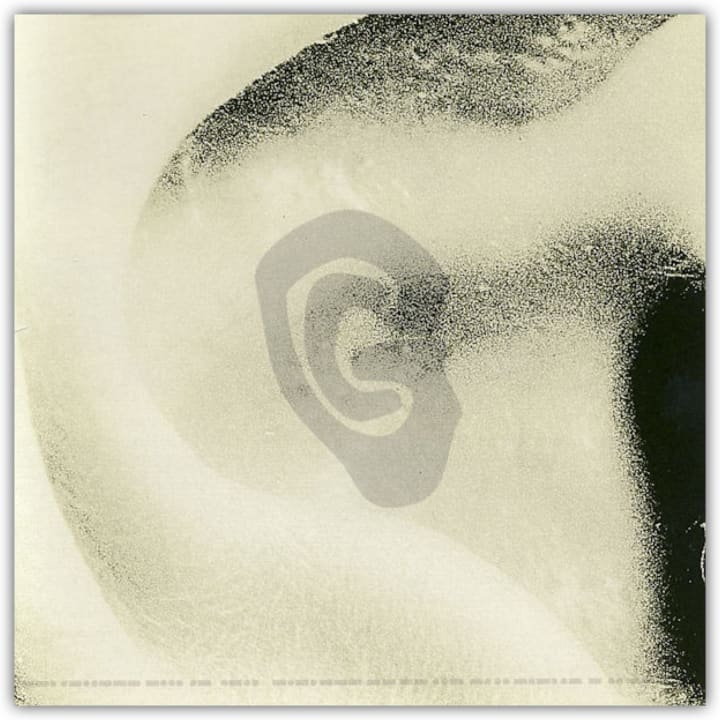
The closing track on Global Communication's seminal 1994 album, 76:14 (a number in reference to the approximate runtime of the entire record, and a theme that extends to the titles of every song therein), this song is one I previously included in my imaginary soundtrack to 2020, so if I may do a bit of recycling, and quote what I already wrote:
An old favourite of mine for chilling out and sleeping to, this 12 minute slice of aural bliss is a gorgeous ambient journey through free-floating, cascading wisps of divine female vocals, looping and harmonising and disassembling and reconstituting in and out of a heavenly chorus.
Funnily enough, on this selfsame album, the tracks '8:07' and '5:23' both sound remarkably similar to the aforementioned 'Love On A Real Train'... which itself was supposedly riffing on a movement from Steve Reich's Music for 18 Musicians. The former was (allegedly) the result of Global Communication having done a remix of Tangerine Dream's original track for a remix album TD were putting together in the early 90's, only for GC's remix to be rejected, hence why they put it on their 76:14 album instead. The latter was (allegedly) the result of Paul Brickman, the director of Risky Business, originally wanting Steve Reich to score the film, and when that didn't happen, Brickman asked Tangerine Dream to mimic Reich's sound.
However, from what I could see through researching these connections/allegations, I couldn't find any definitive concrete proof to substantiate either of these claims, but mainly just a preponderance of conjecture and hearsay conveyed via citation-less Wikipedia footnotes, and obscure forum posts.
So what is the truth of the matter?
I dunno. That certain kinds of minimalist music sounds so samey sometimes that audiences, and even the original composers, can't tell one person's work from another's? Maybe...?
• Edward Shearmur - 𝟺𝚝𝚑 𝚘𝚏 𝙹𝚞𝚕𝚢
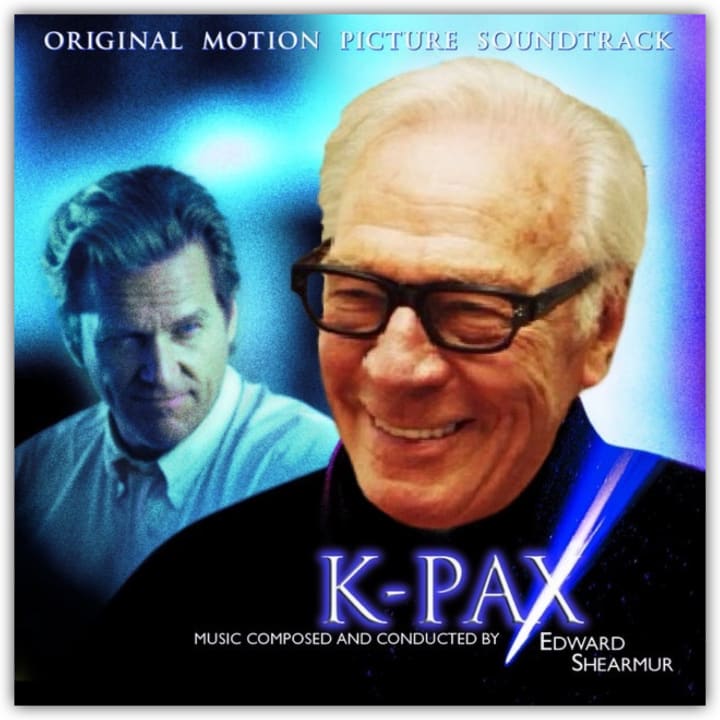
FUN FACT:
K-PAX used to be one of my favourite movies. Growing up watching it from around the ages of 10 or 11, I loved the performances, Iain Softley's excellent directing, the stylish cinematography courtesy of John Mathieson (Ridley Scott's frequent DOP), and especially the all-timer of a soundtrack by Edward Shearmur.
Hell, because of the film, when I was 12 I even read the Gene Brewer book it was based on... or rather, the trilogy omnibus edition the first book came with. (I never did read the other two, though I've heard the quality declined significantly with every subsequent novel, so maybe it's for the best.)
But then, Kevin Spacey had to go and ruin that unadulterated love of the film by being... well... Kevin Spacey, what with all the multitudes of allegations that came out against him in 2017, as well as him indirectly confirming their veracity by way of his manipulative, unsettling behaviour afterwards, which only salted the earth further.
So, in highlighting this wonderful track from Shearmur's criminally under-appreciated K-PAX score, I decided to do what Ridley Scott smartly did to Spacey in All The Money In The World - i.e. completely remove and replace him with the infinitely superior Christopher Plummer (now sadly no longer with us).
I think it's a sizeable improvement, if I do say so myself.
(Oh, and you should also check out the track 'New Mexico', which underscored the most heartbreaking scene of the film, wherein Jeff Bridges delivered one of the best performances in his career. Ignore Spacey; focus on the ever-abiding Jeff...)
• Vangelis - 𝚁𝚊𝚌𝚑𝚎𝚕’𝚜 𝚂𝚘𝚗𝚐
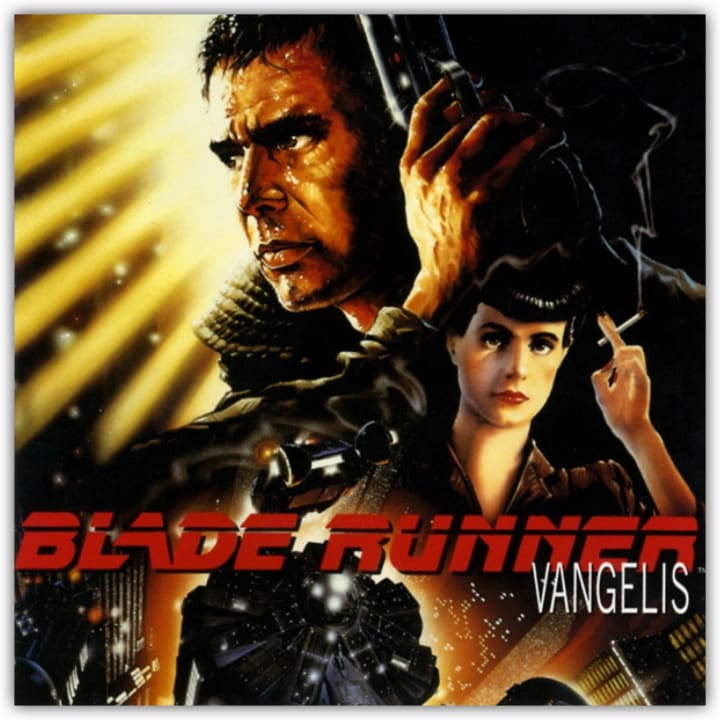
The Workprint Cut.
The U.S. Theatrical Cut.
The International Theatrical Cut.
The Director's Cut.
The Final Cut.
I have watched all five versions of Blade Runner multiple times over the years, so I can confidently confirm that not a one of them features Vangelis' magnificently mellifluous 'Rachel's Song'.
This fact alone drives me absolutely (Roy) Batty...
• Michael Brook - 𝚄𝚕𝚝𝚛𝚊𝚖𝚊𝚛𝚒𝚗𝚎
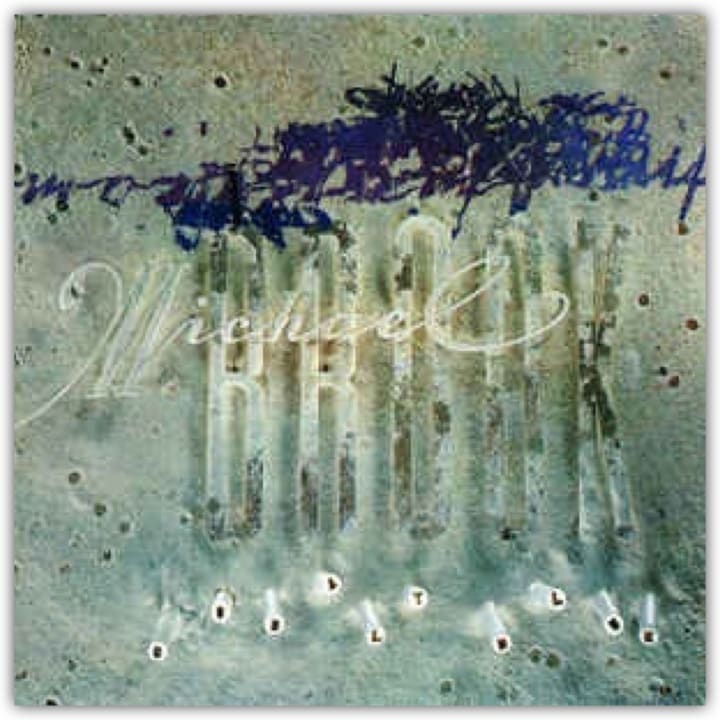
It's got a kinetic, nocturnal vibe that feels like driving with the top down, through a neon city at nighttime.
It appeared in the soundtrack to Michael Mann's Heat.
And it's the greatest example of Michael Brook's "Infinite Guitar" technique and set-up (and also, did you know only Brook, Daniel Lanois, and The Edge from U2 own the type of "Infinite Guitar" that Brook designed?).
What's not to love?
• Daft Punk - 𝚂𝚘𝚕𝚊𝚛 𝚂𝚊𝚒𝚕𝚎𝚛
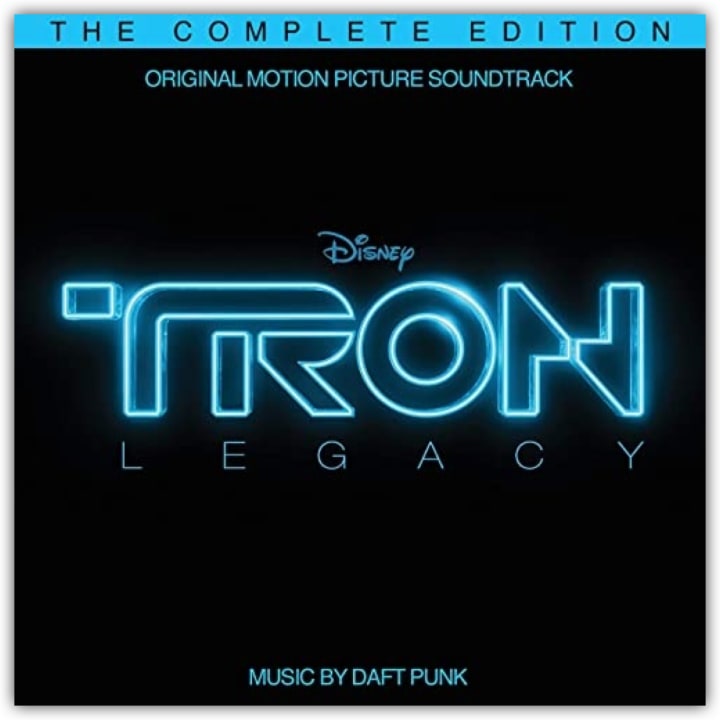
Daft Punk is dead.
Long live Daft Punk!!
(Oh, and hey, look! It's the soundtrack to another film with Jeff Bridges! Quite the co-inky-dink, eh...?)
•••
And that'll do it for Part 1 of this article miniseries delving into the songs within this little zen playlist.
Watch out for Part 2, where there'll be music from films by Danny Boyle, and Terrence Malick, two songs related to Hannibal Lecter, and three connections made to movies with Brad Pitt.
How?
You'll see!
Why?
Because my brain is extremely pattern-oriented to an obsessive degree that I cannot control!
When?
Eventually!
Stay tuned, and much love...
About the Creator
Enjoyed the story? Support the Creator.
Subscribe for free to receive all their stories in your feed. You could also pledge your support or give them a one-off tip, letting them know you appreciate their work.






Comments
There are no comments for this story
Be the first to respond and start the conversation.